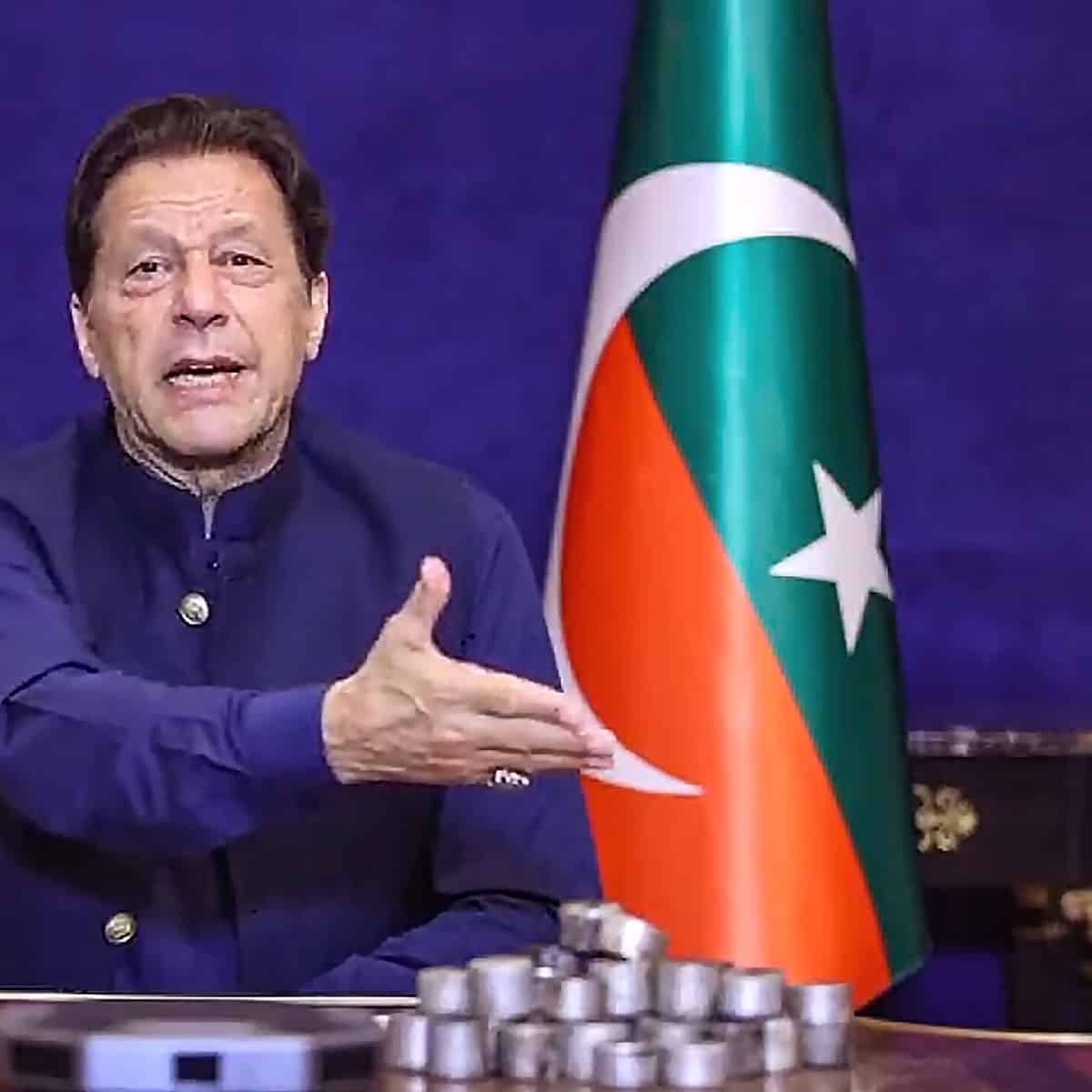
Islamabad: A high court in Pakistan on Friday suspended the non-bailable arrest warrant against former Prime Minister Imran Khan in a corruption case till March 18, giving the Pakistan Tehreek-e-Insaf (PTI) chief a chance to appear in a district court here.
The District and Sessions Court in Islamabad issued the arrest warrant against the ousted premier on February 28 in the Toshakhana case about the concealment of the proceeds of the state gifts and directed the capital city police to bring Khan to court by March 18.
The Islamabad High Court (IHC) Chief Justice Aamer Farooq, passing the order suspending the non-bailable arrest warrant on Friday, also asked police to provide 70-year-old Khan security to appear in the sessions court.
The development comes a day after Additional District and Sessions Judge (ADSJ) Zafar Iqbal dismissed a plea by Khan to suspend his non-bailable arrest warrant in the state depository case.
Khan has been in the crosshairs for buying gifts, including an expensive Graff wristwatch he had received as the premier at a discounted price from the state depository called Toshakhana and selling them for profit.
Established in 1974, the Toshakhana is a department under the administrative control of the Cabinet Division and stores precious gifts given to rulers, parliamentarians, bureaucrats, and officials by heads of other governments and states and foreign dignitaries.
Khan was disqualified by the Election Commission of Pakistan (ECP) in October last year for not sharing details of the sales. The election body later filed a complaint with the district court to punish him, under criminal laws, for selling the gifts he had received as prime minister of the country.
On Thursday, Judge Iqbal dismissed Khan’s plea to suspend a non-bailable arrest warrant against him and said that he would halt attempts by the Islamabad police to arrest him if the ousted premier surrendered before the court.
He ordered the police to arrest Khan and present him on March 18 as per law.
“Law is the same for everyone,” the judge wrote in his judgment after three back-to-back hearings.
While hearing the case, the judge remarked that Khan should surrender unconditionally before seeking any favour from the court.
Khan has skipped several hearings in the case.
The PTI chief has been resisting arrest in the Toshakhana case, holed up inside his Zaman Park residence in Lahore, surrounded by hundreds of his supporters, who have fought pitched battles with the police and Rangers over the past few days, resulting in injuries to more than 60 people, mostly policemen.
The clashes ultimately subsided after the courts intervened on Wednesday, a day after which Khan’s supporters placed shipping containers outside the main entrance of his residence and equipped themselves with clubs and slings to protect the former premier from any further police action.
As police laid siege to his Lahore residence, Khan had once again rushed to the IHC with a petition against the arrest orders.
The IHC refused to intervene and asked the lawyer to go to the district court and give a commitment that Khan would appear on March 18 when the court had scheduled a hearing of the case.
Khan appeared before Lahore High Court on Friday and assured that he was ready to present himself on Saturday before the judge handling a corruption case against him, PTI leader Fawad Chaudhry told media persons on Friday, adding that “an undertaking has also been given to the court”.
Separately, Khan was set to appear in the Lahore High Court (LHC) for a protective bail to let him travel to Islamabad. Earlier, the Lahore High Court stopped the police from any action till 3 pm to arrest Khan.
According to Khan, he was facing over 80 different cases in various courts across Pakistan.
Khan was ousted from power in April last year after losing a no-confidence vote, which he alleged was part of a US-led conspiracy targeting him because of his independent foreign policy decisions on Russia, China and Afghanistan.
Since his ouster, Khan has been asking for early elections to oust what he termed an “imported government” led by prime minister Shehbaz Sharif.
Sharif has maintained that elections will be held later this year once the parliament completes its five-year tenure.

